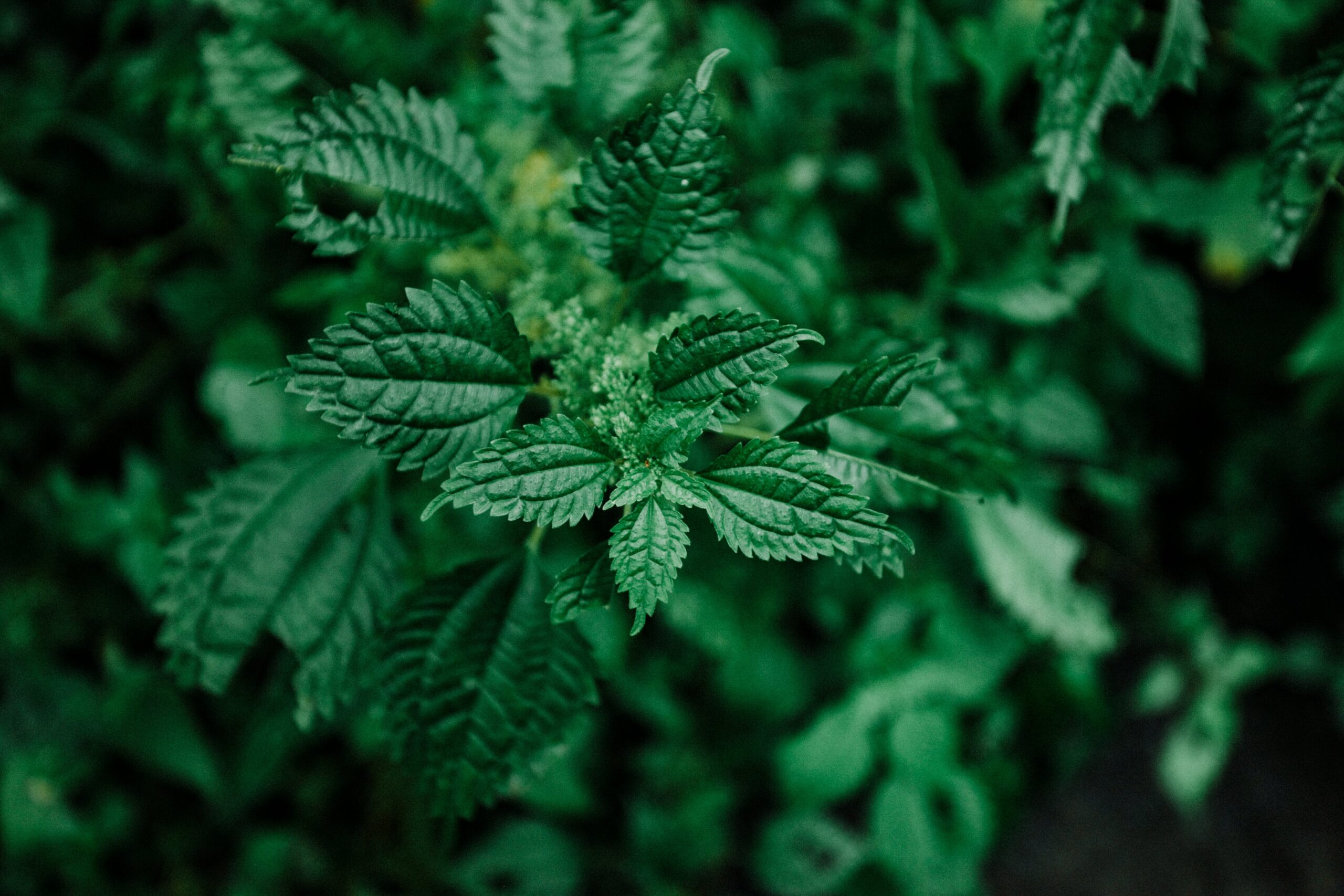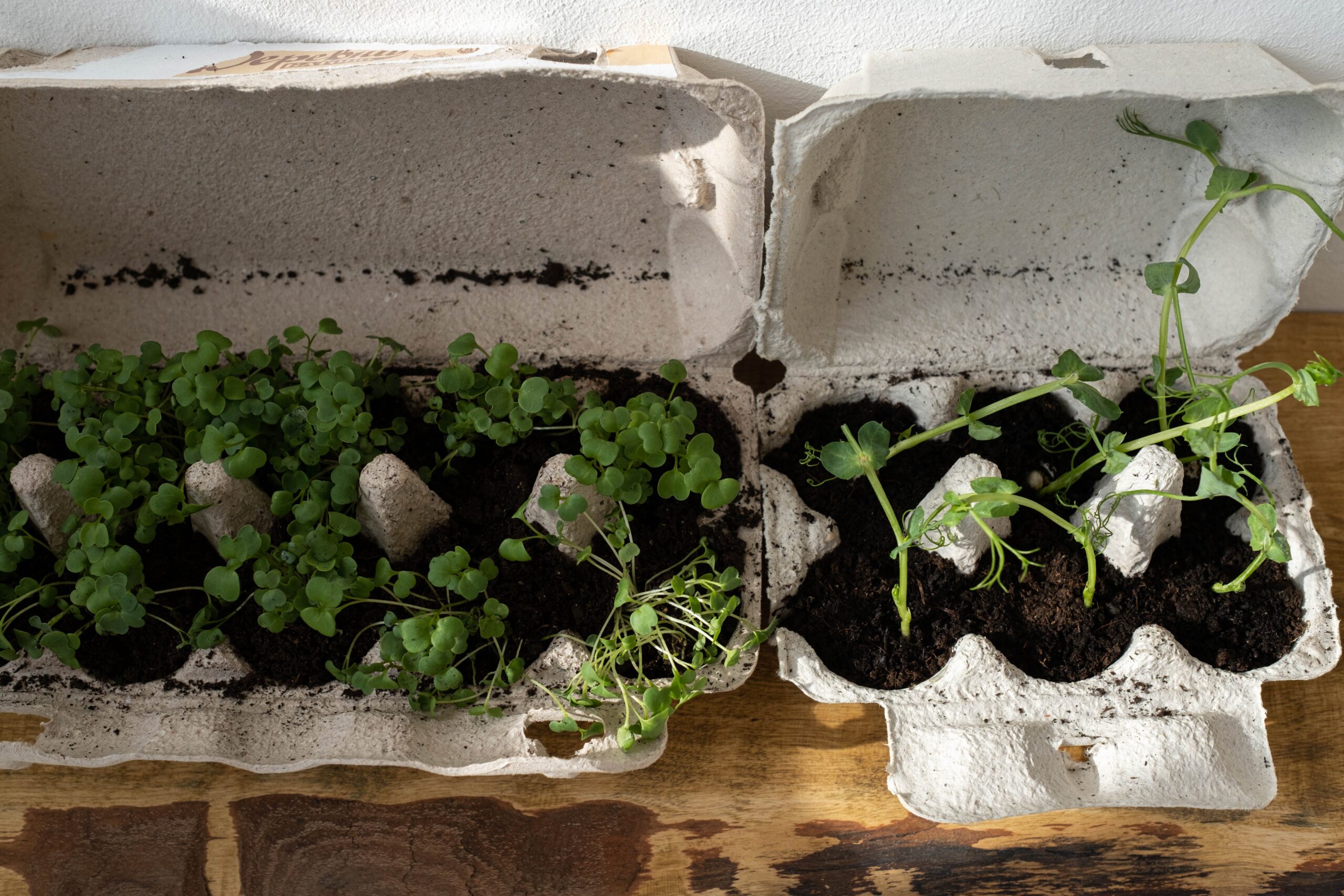How to Make Nettle Fertilizer: Benefits, Step-by-Step Guide, and Tips
Last updated on
Gardening enthusiasts and eco-conscious individuals alike are increasingly turning to natural and sustainable methods to nurture their plants and gardens.
Nettle, a common weed with remarkable properties, can be transformed into a powerful natural fertilizer that not only promotes healthy plant growth but also reduces our reliance on chemical alternatives.
Today, we will explore the process of creating nettle-based fertilizer, its numerous benefits, and how you can incorporate this eco-friendly solution into your gardening practices for a greener and more vibrant garden.
WHAT IS NETTLE EXACTLY?
Nettle, scientifically known as Urtica dioica, is an intriguing plant with a reputation that’s quite literally a mixed bag. Often dismissed as a bothersome weed, primarily due to the stinging hairs that can leave an uncomfortable, itchy rash when touched, nettle has a dual nature – a villain in one context, a green marvel in another.
Despite its prickly reputation, nettle is far more than a garden annoyance. It’s a versatile plant that has been used for centuries in various ways, from culinary purposes to traditional medicine. Beyond its utility, what sets nettle apart is its remarkable potential as a natural and sustainable fertilizer.
A Natural Fertilizer Extraordinaire
When we look beyond the stinging hairs and delve into the heart of nettle’s capabilities, we discover a plant with extraordinary attributes that make it a true asset to gardeners and eco-conscious individuals.
And since it is readily available in many regions — Europe, Asia, North Africa, and North America — and often growing wild in fields, forests, and gardens, its abundance and resilience mean that you can easily harvest it without harming the environment. This accessibility makes nettle a sustainable choice for those looking to reduce their ecological footprint.
Here, we unveil the myriad advantages of using nettle as a fertilizer, from enriching soil health to promoting robust plant growth and reducing the need for harmful chemicals. Discover how this natural wonder can elevate your gardening experience and contribute to a more eco-conscious and vibrant garden.
It is rich in nutrients.
One of the key reasons nettle is prized as a natural fertilizer is its nutrient content. Nettle leaves are packed with essential plant nutrients, including nitrogen, potassium, phosphorus, calcium, and trace minerals like iron and magnesium. These nutrients are crucial for plant growth and development, making nettle an excellent organic source of nourishment for your garden.
It promotes soil health.
Nettle’s prowess doesn’t stop at nutrient content; it extends to soil enrichment. Nettle is a dynamic accumulator, meaning it has an exceptional ability to draw up nutrients from deep within the soil. When nettle is transformed into a fertilizer and applied to the garden, it enriches the soil with the very nutrients it absorbed, enhancing overall soil health and fertility. This unique quality reduces the need for synthetic fertilizers and aligns perfectly with sustainable gardening practices.
It makes plants disease-resistant.
Nettle contains compounds that can help plants develop resistance to common pests and diseases. By incorporating nettle-based fertilizer into your garden, you can potentially reduce the need for chemical pesticides and fungicides, contributing to a healthier and more eco-friendly garden ecosystem.
It has minimal environmental impact.
Unlike chemical fertilizers, which can leach into waterways and harm aquatic ecosystems, nettle-based fertilizer is a sustainable and environmentally friendly choice. It doesn’t contribute to water pollution and doesn’t pose a risk to wildlife, making it a responsible option for eco-conscious gardeners.
A STEP-BY-STEP GUIDE TO MAKING NETTLE FERTILIZER
Harnessing the natural power of nettle to create your own organic fertilizer is a rewarding and sustainable way to nourish your garden. In this section, we’ll take you through the process, step by step, to make nettle fertilizer that will enhance the health and vitality of your plants.
Materials You’ll Need
Before we dive into the process, gather the following materials:
- Fresh nettle: Harvest young nettle plants. Wear gloves to avoid stings, and collect about a pound (450 grams) of nettle leaves and stems.
- Large container: A large bucket or container with a lid, preferably with a capacity of at least 5 gallons (19 liters).
- Water: You’ll need approximately 5 gallons (19 liters) of water, preferably non-chlorinated.
- Weight: Something heavy, like a stone or a brick, to keep the nettle submerged in the water.
- Aeration: A long stick or a piece of PVC pipe for stirring and aeration.
- Strainer or cloth: A fine mesh strainer or a piece of cheesecloth to filter the liquid.
- Storage container: Smaller containers, such as bottles or jars, for storing the finished fertilizer.
Now, let’s get started with the process:
Step 1: Harvest and Prepare the Nettle
- Wear gloves and long sleeves to protect yourself from nettle stings.
- Harvest the top few inches of young nettle plants, including leaves and stems. Avoid using mature plants, as they may contain more fibers and can be less nutrient-rich.
- Rinse the harvested nettle thoroughly to remove dirt and debris.
Step 2: Place Nettle in the Container
- Place the rinsed nettle leaves and stems in the large container.
- Add enough water to fully submerge the nettle material. Ideally, use non-chlorinated water to avoid harming beneficial microorganisms.
Step 3: Weigh Down the Nettle
Place a heavy object, like a stone or brick, on top of the nettle to keep it submerged in the water.
Step 4: Stir and Aerate
Stir the nettle-water mixture daily using a long stick or PVC pipe. This helps to aerate the mixture and accelerate the decomposition process.
Step 5: Fermentation Period
Allow the nettle mixture to ferment for about 2 to 3 weeks. During this time, the nettle will break down, releasing its nutrients into the water.
Step 6: Strain and Store
- After the fermentation period, strain the liquid into smaller containers using a fine mesh strainer or cheesecloth. This liquid is your homemade nettle fertilizer.
- Store the nettle fertilizer in a cool, dark place. It can be used immediately or diluted with water before application to your plants.
TIPS ON USING NETTLE FERTILIZER
Now that you’ve successfully crafted your homemade nettle fertilizer, it’s essential to know how to apply it effectively to reap the maximum benefits for your garden. Here are some valuable tips to consider:
- Dilution is key: Nettle fertilizer can be quite potent, so it’s crucial to dilute it before applying it to your plants. A common ratio is one part nettle fertilizer to ten parts water. This dilution ensures that your plants receive the nutrients they need without the risk of over-fertilization, which can harm their growth.
- Timing matters: Apply nettle fertilizer during the growing season, as it provides a boost of nutrients that your plants require for robust growth. Early spring is an excellent time to start, but you can continue throughout the growing season, typically until late summer or early fall.
- Foliar feeding: Spraying diluted nettle fertilizer directly onto the leaves of your plants can help them absorb nutrients more efficiently. This foliar feeding method allows for quicker nutrient uptake and can enhance the overall health of your plants.
- Root drenching: For deeper soil nourishment, consider drenching the soil around the roots of your plants with diluted nettle fertilizer. This method ensures that the nutrients reach the root zone, promoting strong root development.
- Avoid overuse: While nettle fertilizer is natural and organic, it’s still possible to overuse it. Applying it too frequently or in high concentrations can lead to nutrient imbalances in your soil. Regularly monitor your plants’ health and adjust your fertilization schedule accordingly.
- Combine with compost: For a comprehensive approach to soil improvement, combine nettle fertilizer with compost. Compost adds organic matter to the soil, while nettle fertilizer provides essential nutrients. This combination can result in healthier, more productive plants.
Natural fertilizers like nettle take time to work. While you may not see immediate results, consistent and patient application will lead to healthier and more robust plants in the long run.
Also remember that different plants have varying nutrient requirements, so it’s a good idea to experiment with nettle fertilizer on a small scale and observe how your plants respond. Some may benefit from more frequent applications, while others may need less.
Should you have any unused nettle fertilizer, make sure to keep it in a cool, dark place to preserve its effectiveness. Proper storage ensures that you have a steady supply of this valuable resource throughout the growing season.
SPREADING THE WORD ABOUT NETTLE
Our individual choices ripple across the landscape of our communities and the environment as a whole. In the humble nettle, we’ve uncovered a potent ally for sustainable gardening, a green secret waiting to be shared.
Imagine a world where our gardens are not just flourishing oases of beauty but also thriving ecosystems of harmony and sustainability. By embracing nettle fertilizer and sharing this knowledge with others, we embark on a journey towards that very vision.
Gardening, at its core, is a celebration of life, a dance with nature that inspires growth, beauty, and renewal. As we incorporate nettle into our gardening routines, we join hands with fellow enthusiasts, creating a verdant tapestry of eco-conscious practices.
Some of the links I post on this site are affiliate links. If you go through them to make a purchase, I will earn a small commission (at no additional cost to you). However, note that I’m recommending these products because of their quality and that I have good experience using them, not because of the commission to be made.



































 JOIN OVER
JOIN OVER
Comments